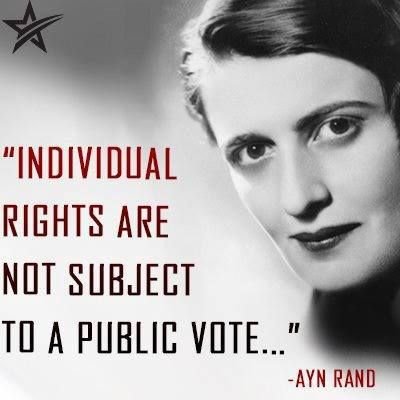The Social Justice Movement is Its Own Worst Enemy
...

The Quandry of Contemporary Social Justice - Ideals vs. Actions
I am sympathetic to social justice movement's desire to achieve a just society, but it does not appear as if its current approach will be successful in achieving that goal. Not only are the foundational concepts of the movement not conducive to establishing a just society, the "public relations campaign" of the current social justice movement is perhaps the single greatest train wreck the world has ever seen.
The most prominent cases of social justice warrior outrage resemble an all-star line-up of Darwin Awards for social and intellectual credibility. Inarticulate infantile tantrums, vapid delusions of victimization, irrational racist ranting, anti-free speech apoplexies of rage, advocating gratuitous genocide, irrefutable intellectual incompetence, together with an overt and explicit war on free speech have conclusively demonstrated that the social justice movement, as practiced by many of its advocates today, is all too often portraying itself as irrational, intolerant, ignorant, bigoted, racist, vengeful and violent.
Despite all of this - and there are thousands of examples with more coming out every day - the social justice movement as a whole doesn't seem to recognize that the behavior of its advocates is blatantly at odds with its professed goals. When such unhinged behavior is employed by a movement whose self-proclaimed goal is to achieve justice, it smacks of hypocrisy, which is not how to win supporters for a cause. This overt doublethink, which broad swathes of the population have not been indoctrinated into, gives the impression that the social justice movement has descended into full-blown mass hysteria. Could it be that this woefully counterproductive behavior is based on a flawed concept of what a just society would be?
It is appropriate to say that justice is a necessary component of a functioning society. And I would contend that most people (myself included) would prefer a great deal more justice in society, if not the establishment of a truly just society. But what is a just society? This topic has been discussed exhaustively elsewhere, here I will simply postulate that a just society would be based on individual rights and in its essence be voluntary, meritocratic and altruistic. This is very much a working definition, but is sufficient for my purposes here.
I would also like to include a somewhat lengthier consideration by the late Professor Tibor Machan, which I largely ascribe to, when he stated that a just society would be:

"... a society based on principles of individual rights that are identified by reference to human nature, a universal standard that can guide a social system to serve the best interest of all those who live under it. Seemingly paradoxically, the public interest or common good turned out to be what was in the interest of individual members of society as individuals and members of freely formed groups, not any group or the whole society or some such divisive faction of human beings. Protect the basic rights of all members of society and you will have achieved the public interest! Respect for and the protection of individual rights are what best serve the public! Human beings are fundamentally individual persons and none may be tossed aside as they are being properly, justly governed.
A side effect of this discovery was that society may only be minimally governed, that government's scope must be severely limited, that all temptation to regiment the whole must be resisted except for never allowing individual rights to be violated, sacrificed no matter how important it may appear to do so!" source
Tibor's inclusion of human nature is crucial in any "equation" for establishing a just society. It is the nature of humanity as a whole to strive to improve its circumstances both at the individual and communal level, and I contend that an injustice perpetrated on an individual must as a consequence undermine any attempts to establish justice at the societal level. This is an aspect that I contend is largely neglected in the current social justice movement.
If society is a bridge, the individual is one of the struts that supports it. Justice can be considered a kind of material integrity that is an essential aspect of each individual component and the structure as a whole. Seen in this way, undermining the integrity of a single strut would be a clear and present danger to the whole.
There are three main aspects of the social justice movement that I contend are antithetical to the establishment of a just society, beginning with:
Contemporary Social Justice is Rooted in Violent Authoritarianism
Firstly, the current iteration of 'social justice' as a term is a Marxist formulation at heart and the conceptual framework itself, in application, eliminates the possibility of a just society as I understand it (see above). This is because the foundational concept of "social justice", as formulated by Marx, argues for eliminating private property and justifies the use of governmental force (violent authoritarianism) to redistribute wealth to achieve absolute economic equality. Marxism in its original formulation was focused primarily on achieving economic equality and the elimination of economic stratification via force if necessary (and it is considered absolutely necessary).
This aspect is very much part of the current social justice movement, with its calls for wealth confiscation and redistribution via entitlement programs enacted by government. Further, in typical Marxist fashion, many social justice warriors rationalize intimidation and violence to achieve their financial and sociopolitical goals.
To my mind, it is inconceivable how forcibly depriving people of money or property they have fairly worked for could ever result in a just outcome. The use of force to enforce a "just" society on non-consenting individuals is unjust on its face. Advocating such a position is much the same as saying you have to wage war to end war. The greatest irony here is that the social justice movement today seems to believe it is actually combating violent authoritarianism using ... you guessed it ... violent authoritarianism. This is nowhere more apparent than among the anti-fascists, who are behaving almost exactly like Mussolini's fascist Black Shirts and Hitler's fascist Brown Shirts did during the rise of their respective regimes.
Contemporary Social Justice is Antithetical to Meritocracy
Secondly, 'social justice' as a term has also evolved to include an oppositional stance to the concept of "social privilege", meaning that no individual should have any social privileges that others do not. Earned privileges are however one of the defining components of a meritocratic system, eliminating the ability to earn privileges for productive behavior is anti-meritocratic. Further, it should be noted that some privileges are innate or the product of natural selection that are viewed favorably by society as a whole. There are many different types of social privilege and predicating a just society on the elimination of those privileges is not only impractical but unachievable in accordance with human nature.
The following video highlights this in a somewhat humorous manner (adult language):

Eliminating all social privileges may stop a few fragile snowflakes from having their feelings hurt, but it would be a manifestly unnatural social engineering attempt doomed to create a completely dysfunctional society. The enforcement of equality is ultimately impossible, because the individuals tasked/privileged with enforcing equality must - in keeping with their task - have authority over others, ipso facto inequality is inherent in any attempt to use force to achieve equality.
The objective of enforced equality very much reminds me of Kurt Vonnegut's tale of "Harrison Bergeron" in which:
"The year was 2081 and everybody was finally equal. Nobody was smarter than anybody else. Nobody was better looking than anybody else. Nobody was stronger than anybody else, quicker than anybody else. All this equality was due to the 211th, 212th & 213th amendments to the Constitution and the unceasing vigilance of the agents of the United States Handicapper General. They were not only equal before God & the law, everybody was equal every which way."
There are many screen adaptations of this tale, the most appealing of which is "2081":
2081 Universal Absurdity - Edited from Mayra Tribeca Film Fellow on Vimeo.
(Watch this! You won't regret it!)
Short of a genetically engineered clone society, I fail to see how it is possible to achieve the goal of equal social privileges for all people. Uniformity of this sort would also be a death knell for meritocracy, which is perhaps the prime motivator for people trying to better themselves or their condition. If people can't "get ahead" no matter what they do, why would anyone bother to work or contribute to society? The belief that people would do it "just because" is not in keeping with human nature and goes counter to every known historical precedent. The earliest pilgrims learned this the hard way when they had to abandon their utopian communal (socialist/communist) dream, which can be read about in Why the Pilgrims Abandoned Communism and The Pilgrim's Failed Socialist Experiment.
Identity Politics are Inherently Biased
Thirdly, the social justice movement has completely embraced identity politics. Identity politics do not appear to be rational forms of argumentation for social or political discourse. Why? If an argument's validity is to be judged on the race, gender, sexual orientation or ethnicity of its formulator (rather than on its objective merit), it seems to me that is a position that at the very least tacitly advocates a racist, sexist, ethnocentric or gender discriminatory mindset or behavior.
Ben Shapiro recently addressed the role of identity politics in the assault on free speech on university campuses during his testimony before the United States Congress and it a very concise summary of the challenges faced by those who desire a peaceful and just society today:

It is also worth watching the compilation of his complete testimony to congress here.
Social Justice is Riddled with Logical Inconsistencies
In closing, it appears to me that every self-proclaimed goal of the social justice movement is actively undermined by the conceptual foundations it rests upon. Additionally, the individuals that comprise the social justice movement appear to have very little understanding of what justice is, all too often appearing to misunderstand revenge or vengeance as justice, which is highly counterproductive to what many social justice advocates believe it should achieve. A large portion of the individuals advocating the contemporary social justice movement appear to have little to no understanding of what it means to be just. Moreover the law of consequences seems to be completely disregarded, successfully "revolutionizing" society with the current approach would be catastrophic for everyone - themselves included - as the cycle of discrimination, oppression and violence would only continue at a much accelerated pace.

Indeed, the current social justice movement is now exacerbating precisely those injustices it claims to be fighting by substituting one victim group with another. I am willing to concede that many SJWs have their heart in the right place, but it appears they just haven't thought it through to its logical conclusion. The concrete actions of many social justice warriors today demonstrates an audacious degree of hypocrisy that suggests they are completely lacking in self-reflection or the ability to be objective while pursuing what increasingly appears to be a radical ideology of revenge that is erroneously described as "justice". That this is not self-apparent to those perpetrating the hypocrisy indicates that the skills of critical thinking and logic have not only remained unlearned, but that the educational establishment within which it has gestated is not interested in teaching it to them.

.
.
.
Shot with a golden arrow,

.
.
.
Don't forget to upvote, follow and resteem! Comments always appreciated.
.
.
.
All gifs courtesy of Giphy
Ayn Rand Quote: source
tags: politics justice society life logic
